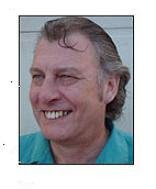
Part Four of a series of six posts. SEE previous posts here, here, and here.
OK, let's put Orwell's caveat in place first:
It will never be possible to get a completely accurate and unbiased account of the Barcelona fighting, because the necessary records do not exist. Future historians will have nothing to go upon except a mass of accusations and party propaganda. H.T.C. p.144.
What Orwell wrote remains true. However, historians now have access to the former Soviet Union's archives and material from the Salamanca papers.
On page 220 of Orwell – The Life D.J. Taylor writes:
It was an odd state of affairs, Orwell reflected, that Barcelona, of all places, should turn out to be probably the only major city in non-Fascist Europe not to celebrate the twentieth anniversary of the Soviet Revolution.
Orwell reflected no such thing.
What Orwell actually reflected is rendered thus:
It was a queer state of affairs. Barcelona, the so-called revolutionary city, was probably the only city in non-Fascist Europe that had no celebrations that day. H.T.C. Chapter 9, page 116.
No mention there of Soviet anniversaries!
The official anniversary of the Soviet Revolution is November 7th , not May 1st.
In fact the Communists in Barcelona marked the birthday of the Soviet Union with three weeks of celebratory events in October and November, 1937! This is well documented; the Museum of the History of Catalonia in Barcelona has at least one copy of the official programme in its collection – I know because I've seen it and read it.
I consider this to be the most serious error in the text because D.J. Taylor ascribes an erroneous reflection to Orwell, i.e. puts thoughts into his head.
Orwell would most certainly have known that May 1st, International Workers' Day, has nothing at all to do with the founding of the former Soviet Union.
To interpolate Orwell's reflections in such a way shows a lack of judgement and a lack of knowledge, or perhaps belies a deliberate attempt to distort.
The May 1st International Workers' Day was called into being by anarchists in the American labour movement by way of commemorating the Haymarket (Chicago) Martyrs.
The May Day protest date was subsequently adopted and promoted by the International Working Mens Association (now the IWA or AIT), and the 1889 Paris meeting of the Second International, as an international day of workers' solidarity.
The show trial of eight anarchists, and the subsequent execution of four of them, and the suicide of another, which followed on from a police riot and disputed bombing of police, was a cause célèbre. At one stage of the international campaign even William Morris and George Bernard Shaw, among many other intellectuals and artists, publicly registered their protest. Check out A People's History of the United States by Howard Zinn, HarperCollins, New York, 1995, pages 265-266.
The Soviet Union, having unilaterally positioned itself as leaders of the international workers' movement, certainly used the day to propagandise its success at founding a so-called workers' state, but it never proposed that May Day should be considered the official anniversary date of the State.
Given the pre-eminence of the anarchist movement in Barcelona at the outbreak of the Army Uprising in July 1936 Orwell noted "a queer state of affairs" [NOTE: Orwell uses the word 'queer' not 'odd' as paraphrased by D.J.Taylor] because it served as an indicator of the extent of how the anarchists (and radical socialists) had been undermined by an alliance of bourgeois Catalan, and Spanish and Soviet Communist interests.
D.J. Taylor studied Modern History at St. John's College, Oxford.


No comments:
Post a Comment